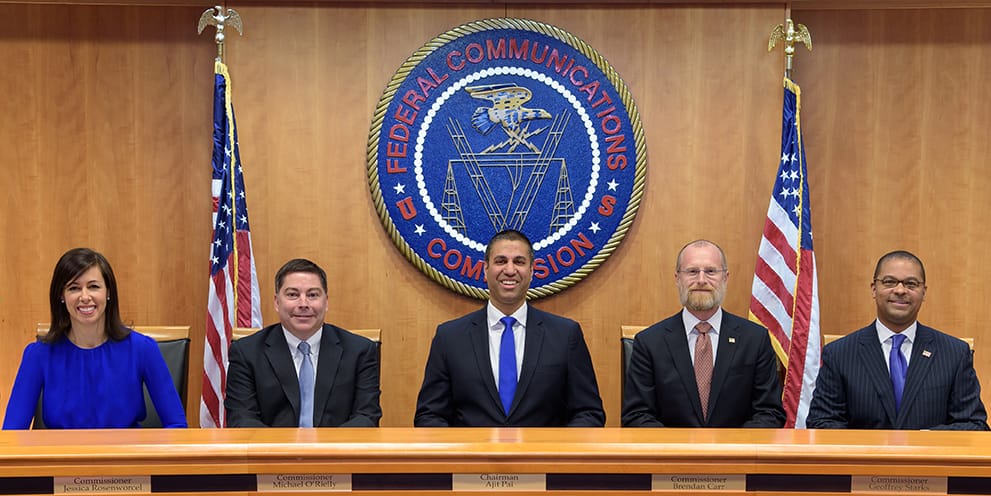Coronavirus Roundup: Speedy FCC Web Meeting, NCTA Broadband Dashboard, GEO’s New Mapping Tool
The commissioners of the Federal Communications Commission announced at the start of the Commission’s monthly meeting – perhaps the first fully-remote monthly meeting at the agency – that they had already voted in favor on all nine proposals listed on the meeting agenda. Commissioners cited the “ext
David Jelke

The commissioners of the Federal Communications Commission announced at the start of the Commission’s monthly meeting – perhaps the first fully-remote monthly meeting at the agency – that they had already voted in favor on all nine proposals listed on the meeting agenda.
Commissioners cited the “extraordinary times” wrought by the coronavirus and congratulated its staff for acting quickly in the face of those difficulties to institute change.
The meeting lasted a total of 14 minutes, whereas most open meetings stretch well beyond two hours, included ratifying a piece that requires some Voice-over-Internet-Protocol providers to trace the authenticity of all calls passing through their system.
Some commissioners also used the evanescent soapbox of the webinar to issue various rallying cries.
Jessica Rosenworcel brought attention those “who desperately need to go online for school right now” and said that the coronavirus is exacerbating the fault lines in the homework gap.
Similarly, Geoffrey Starks cited the need for more funding for the E-Rate program, declaring that the digital divide has “morphed into a monstrous new Covid-19 divide.”
NCTA releases new data on network performance
The cable association NCTA debuted an internet dashboard showing new metrics on how cable internet is handling the coronavirus broadband stress, according to a blog post by association CEO Michael Powell.
The group’s key takeaway is that usage during peak hours has increased, but that networks have thus far been able to handle the increased usage well.
In addition, upstream usage, which typically sees its peak in the evening, has shifted up to the afternoon. Downstream usage has remained steady in the evening time.
The NCTA still cautioned its broadband customers to be “good stewards” of how they use their home networks, highlighting the clogging capabilities of security cameras and “non-time-sensitive” software updates.
“While no consumer is immune from issues arising from temporary congestion in the home or across the internet,” Powell said, “cable ISPs will continue in their efforts to plan for future demand and move swiftly to address issues when they arise, even in the midst of this pandemic.”
Newly-renamed GEO (nee NEO) releases product to help contest Form 477 data
Geospatial Engineering and Optimization, or GEO, which was until recently was known as NEO Partners, released a product it calls its “Instant Education Network” to help “remote education to student populations within weeks.”
The tool claims to be “the only broadband map that provides statistically valid content” to be used to contest the FCC’s roundly-criticized Form 477 data.
The Form 477 Data has long been criticized for overreporting the number of census blocks with access to broadband. However, the recent passage of the Broadband DATA Act allows jurisdictions to challenge FCC data with its own data, which in some cases would allow those jurisdictions to be eligible for FCC funds.
GEO is charging $1,000 for towns and $5,000 for communities for what it claims to be more accurate data. GEO also guarantees that it can “have your community collecting data within 24 hours,” according to company CEO Paul Deming and Chief Technology Officer Glenn Fishbine.











Member discussion